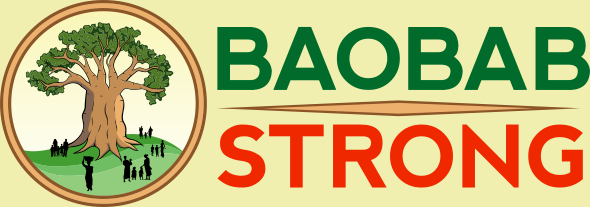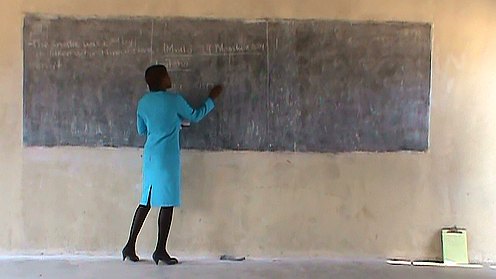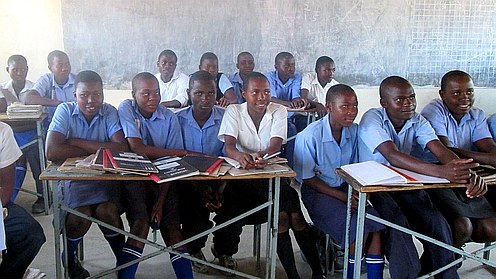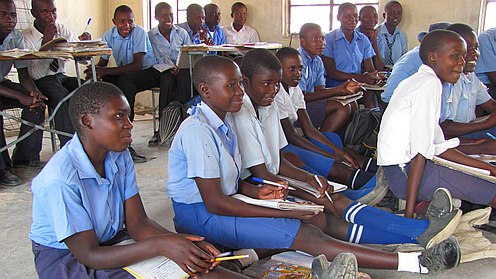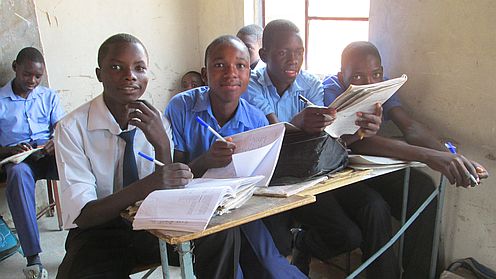Importance
We see education as the primary key to opening up opportunities and breaking the cycle of poverty. Well-educated youth can better serve their families and community as they live a productive life. They will have better opportunities for employment. With a good paying job in the city, a single individual can support their entire rural family.
Unfortunately, in rural areas in particular, many children do not have access to any education. And traditionally girls have been given much less educational opportunities than boys. In some under-developed countries, the government may supply primary schools (equivalent to US grades 1-6), but not build any rural schools for education beyond that point. Those children will likely be forced to remain on their remote farms, with few prospects for a brighter future.
This is why we are actively building schools where they are most needed.
Awakening young minds
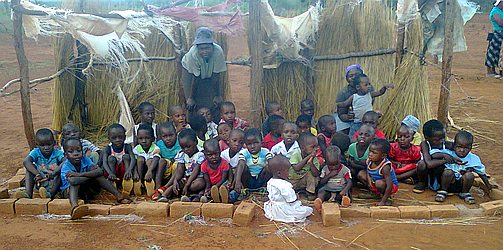
Pre-school is especially important in developing countries. In impoverished areas with poor nutrition and limited ways to stimulate their developing minds, children often suffer learning disabilities and fail to become successful students.
This is why the World Health Organization, and other international aid groups have stressed the need for Early Childhood Development (ECD) programs in all developing countries. Hence, many impoverished countries have recently adopted 2 or 3 years of ECD as mandatory before entering primary school. Without ECD, these children have no future educational opportunities. With lack of transportation, and since young children cannot walk far distances, ECD Centers must be built in every rural community. This is a huge challenge, requiring help from NGO’s.
BAOBAB STRONG is taking part in this Early Childhood Development effort, by building pre-schools in impoverished rural communities. In addition to simple structures for classrooms, these centers also require clean water and sanitary toilets.
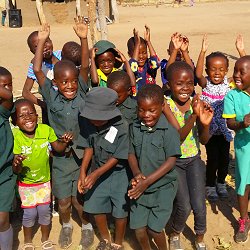
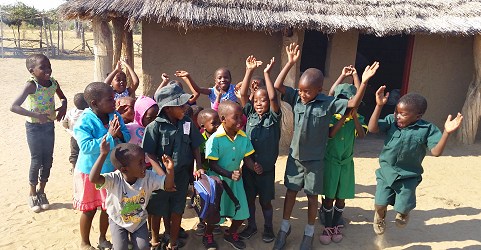
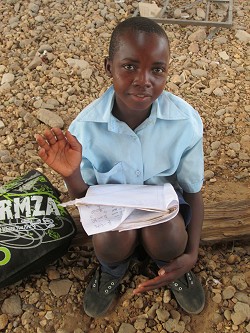
- Preschool
- Primary Schools (US grades 1-6)
- Secondary Schools (US grades 7-10)
- Upper Secondary Schools (US grades 11-12)
- Re-education for those who’ve failed or quit
- Job training
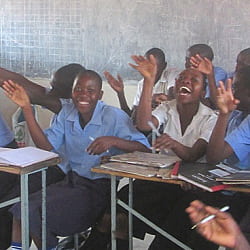
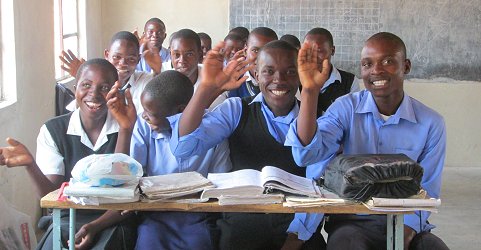
Statements
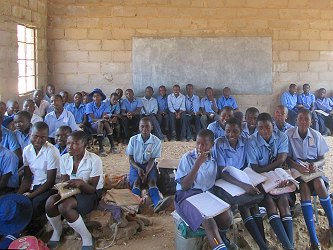
Natalia N. – age 13 female
When I grow up I wish to be a doctor. So we need to have more education for us to have better future . . . and it is important for us to learn.
Waison S. – age 15 male
I am going to school because I had gained many benefits. These include reading and writing, calculating Mathematics. I know how to grow different crops and their control together with the pest attacking.
Prudence N. – age 15 female
The importance of Education is that it gives more knowledge and it is important because it is the key to success and it creates better standard of living to human life.
Talent S. – age 16 male
I had realized that education is important as I can earn better standard of living and raise my family. Now I am trying by all my power at school to produce good results.
Sibonginkosi D. – age 17 female
My parents wishes us to pass educate because education nowadays it is a source of life because if you are not educated there is no work that can you do it. While education is the path flows to money, if you are not educated, you become an orphan of the world.
Mandy N. – age 19 female
. . . education plays important role to our lives. Others say “Education is the most important weapon which can change our life” Also some they say “Education is a tool of wisdom and a road of success” . . . I wish my school to improve in education.
Simosenkosi N. – age 20 female
Education improves standard of living. I need education because I will assist others. People know how to write and read because of education. People may also have knowledge of how to operate things. For us to have peace and unity we need education.
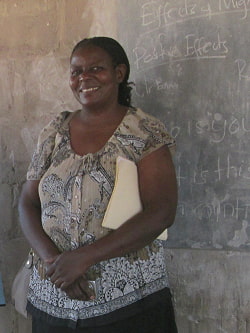
I strongly believe that I am one of the best examples of what difference education can make to an individual, family and community at large.
I grew up in rural Zimbabwe with very limited resources and became the first in my family to attain education beyond seventh grade. At the time, girls were more disadvantaged than boys because apart from lack of educational facilities, communities did not value educating girls. Luckily my mother’s spirited fight for my education as well as support by a family friend, Mr. Mlingo Moyo, made a lasting positive difference in my life. It is difficult to even imagine the state of my life and that of my family had I dropped out of school at seventh grade level.
After high school I went to train as a nurse and over the years my nurse’s salary has financed education for many of my siblings and other family members. I consider myself fortunate because I could have been faced with the challenges of severe poverty throughout my life, had it not been for opportunities brought about by education.
Gratitude for ways education transformed lives in my family continually motivates me to improve education for others especially in rural communities. Since 2009, I have worked with the Jibajiba rural community in efforts to improve education for local youths, by mobilizing resources for a secondary school. Having started off with students attending classes under trees, community efforts with support of donors have provided rural students with better access to secondary school education.
As a founding member for BAOBAB STRONG, I look forward to helping more students from underserved areas to gain access to education that will ultimately improve their livelihood and that of their families. I am happy to tell my story and hope it particularly validates the priceless contribution of education in improving lives in poor communities.
Catherine Gumbo
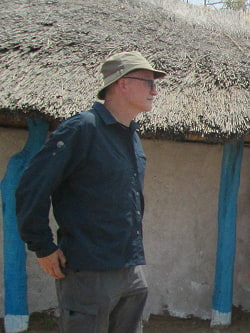
It was very exciting to be a visitor to Jibajiba Secondary School. I got to see first-hand what tremendous progress this new school has achieved in only a couple years. It’s located in a very impoverished rural area of Zimbabwe, where funds are scarce. Though still very incomplete, the simple school structure has already allowed hundreds of children their first opportunity to attend school past age 12.
This education will brighten their future, and help the community tremendously. When I think back, to the many smiling school children, all in blue school uniforms (often their only set of nice clothing), it feels good knowing their lives are being drastically improved.
That local effort, combined with support from BAOBAB STRONG, is definitely helping to break the cycle of poverty.
Steven Kell
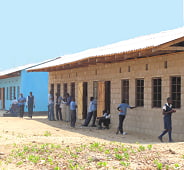
Check out more info on the Jibajiba Secondary School Project
